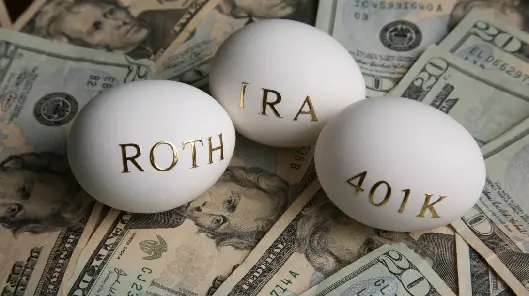6 Signs You’re Financially More Prepared for Retirement Than You Realize

Commitment to Our Readers
GOBankingRates' editorial team is committed to bringing you unbiased reviews and information. We use data-driven methodologies to evaluate financial products and services - our reviews and ratings are not influenced by advertisers. You can read more about our editorial guidelines and our products and services review methodology.

20 Years
Helping You Live Richer

Reviewed
by Experts

Trusted by
Millions of Readers
Often, people feel retirement is far off, but it’s actually something that many people will come to face unprepared. A survey by the American Society of Pension Professionals & Actuaries (ASPPA) suggests that 56% of employees worry about outliving their retirement income and 61% struggle to calculate how long their savings should endure. This anxiety can stem from not knowing if they have enough savings or income.
But there are unmistakable clues that you may be more ready for retirement than you think. Knowledge of these signs will give you certain comfort in your financial future. In this article we take a look at the signs you are financially prepared for retirement.
retirement Savings Mistake That’s Costing Americans Up To $300K
Diverse Income Streams
“The income you can generate from your assets is more important than how much you’ve saved,” said Stephen Kates, certified financial planner (CFP) and principal financial analyst at RetireGuide.com. “A key exercise before retirement is understanding where your money will come from and where it will go.”
Another signal that you’re financially prepared for retirement is having several sources of income. Social Security may not provide you with enough money to cover all of your expenses. In fact, the average Social Security benefit in 2024 is just $1,862 a month, according to U.S. News and World Report.
Kates also suggested investing in other sources of guaranteed income, such as annuities. Furthermore, investing in rental properties or dividend-paying stocks can also help give you some extra cash flow. If you already have these sources up and running, it means you are doing well in your planning for the future.
Substantial Retirement Savings
How much you have saved against retirement is one of the best signs that you’re prepared. Most financial experts would tell you to save at least 10 to 12 times your annual income before you hit retirement. That means if you make $50,000 a year, you should save $500,000 to $600,000 for retirement. This kind of saving can give you a good platform on which to retire.
But this is good news if you have been putting some money into your retirement accounts regularly. One of the nice things about 401(k) and IRA plans is that many people use them to save for retirement. If you are adding to these accounts and doing it on a regular basis, then you aren’t taking your future too lightly.
Clear Retirement Budget
Planning for your retirement means creating a clear budget for your retirement. A properly thought-out budget will prevent you from running out of money before it dries up. It should cover everything in housing, healthcare and leisure activities.
If you have already set a realistic budget that you will be able to afford in retirement, it means that you understand how much money you will need in retirement. According to Fidelity, a rough target is to expect your pre-retirement income to fund about 70% to 80% of your standard of living. Knowing how much money you need and will have on hand every month will help with financial stability.
Low or No Debt
Low or zero debt gives you another important sign that you are financially ready. Too much debt can be stressful when you’re retired. If you’ve paid off major debts such as your mortgage or car loans, that means you’re in the right place financially.
About 40% of older Americans get by on Social Security alone during retirement, according to the Employee Benefit Research Institute (EBRI). You can rely on a single source of income, but it’s a risky game if you fail to pay the debts. To be able to relax and live in peace during retirement, you should be debt free or close to it.
Emergency Fund Established
It’s important to have an emergency fund for your financial security during retirement. These unexpected expenses are likely to come, such as medical bills or home repairs and these should be covered by this fund. That’s why experts recommend keeping enough money in an accessible account to cover three to six months’ worth of living expenses.
This means that you have built your safety net, which implies that you are prepared for all sorts of unscheduled difficulties in retirement. The fund brings peace of mind and lets you be flexible with finances without stress.
Preparedness for Inflation
Being aware of how inflation affects your purchasing power is crucial as well. Inflation can erode the value of your savings over time. Kates suggested you plan for growth in your income over time to combat inflation and build up assets for later retirement. Consider investments that typically outpace inflation, such as stocks or real estate. If you’ve planned for inflation in your retirement strategy, it shows you’re thinking ahead and taking the necessary steps to protect your financial future.
 Written by
Written by  Edited by
Edited by 

























